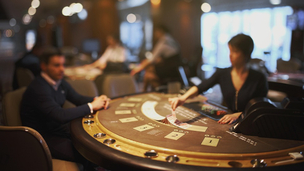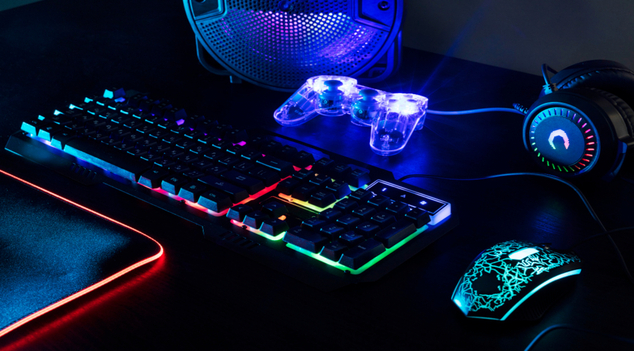The Gamification of Everything: How Casino Mechanics Influence Modern Video Games
If you've played any major video game in the past few years - from Call of Duty to Fortnite or Genshin Impact - you've likely noticed something: gaming isn't just about skill anymore. It's also about rewards. Daily log-ins, loot boxes, random item drops - all of these mechanics have one thing in common: they're inspired by the psychology of casino gaming.
It's not hard to see why. Casinos perfected the art of engagement long before mobile and console developers caught on. The thrill of unpredictability, the dopamine rush from a win, the compulsion to try "just one more time" - it's a formula that keeps players coming back. And in the digital era, the line between gaming for entertainment and gaming for prizes is blurrier than ever. That's part of the reason why so many players today explore both worlds, from competitive shooters to experiences where they can play and win at Uptown Pokies Australia - a modern platform blending tech innovation, mobile compatibility, and classic slot-game entertainment designed specifically for Aussie players.
The Science of "One More Spin"
Every gamer knows the feeling of chasing that next drop, unlocking a new skin, or leveling up a character. What's fascinating is how similar that experience is to spinning a slot reel. Both rely on what psychologists call variable reward schedules - unpredictable outcomes that keep the brain engaged longer.
B.F. Skinner, a behavioral psychologist, proved this concept decades ago with his famous "Skinner Box" experiments, showing how creatures (and later, humans) repeat behaviors that occasionally yield rewards. Casinos turned this principle into an art form. Video games, in turn, turned it into an empire.
Whether it's pulling a digital lever or opening a treasure chest, both actions trigger the same neurological effect: dopamine. And in both cases, the outcome - no matter how small - feels like progress.
Loot Boxes: The Digital Evolution of Slot Machines
Loot boxes have been controversial since their introduction, but from a design perspective, they're brilliant. They blend gameplay with monetization while keeping engagement high. Players earn or purchase randomized boxes containing in-game rewards - skins, weapons, or upgrades.
That structure is nearly identical to slot games, except instead of coins or cards, you're spinning for cosmetics and bragging rights. Regulators in countries like Belgium and the Netherlands have even compared loot boxes directly to gambling, leading to tighter restrictions. But the mechanic isn't going away anytime soon - it's too effective at maintaining player engagement.
Mobile Gaming and Casino Influence
Mobile platforms have become the primary space where gaming and casino mechanics overlap. The interface of many mobile titles mirrors online casinos - with bright visuals, reward pop-ups, and immediate feedback loops. Casual games like Candy Crush or Coin Master integrate casino-style randomness with skill-based play, creating endless micro-engagements that feel both strategic and spontaneous.
This crossover has also led to a boom in dedicated gaming platforms optimized for mobile play, where performance and accessibility matter most. That's where casinos like Uptown Pokies Australia thrive - offering a mobile-first experience where gameplay, design, and user interface follow the same usability principles seen in top-tier game design.
Gamers and the Allure of Random Rewards
Why does randomness appeal to us so much? Because it makes every action matter. Predictable outcomes get boring fast, but random ones create excitement, surprise, and emotional highs. Developers across genres - RPGs, shooters, strategy games - now use RNG (Random Number Generation) to simulate uncertainty and challenge.
Ironically, the very thing that once made casino gaming feel exclusive is what now drives engagement in mainstream gaming. We're hardwired to love uncertainty, as long as we believe skill can influence the outcome - even if it can't.
The Future: Convergence or Collision?
As the lines between gaming, esports, and iGaming continue to blur, questions about regulation, fairness, and player protection will grow. Should loot boxes be disclosed like casino odds? Should games that mimic gambling require age verification? The industry hasn't settled on clear answers yet.
What's certain is that casino design has permanently influenced how developers think about engagement. Whether it's through rewards, achievements, or live-service content, the "spin-to-win" mentality is now woven into the fabric of modern gaming.
Final Thought
The fusion of casino psychology and video game design has created a new generation of interactive entertainment - more immersive, more personal, and more addictive. Whether you're grinding for legendary loot or spinning reels for jackpots, the core emotion remains the same: anticipation. And that, more than anything, is what keeps gamers - and players - coming back for more.
To read the latest guides, news, and features you can visit our Other Game Page.







